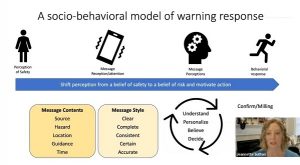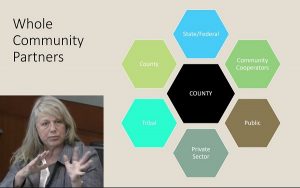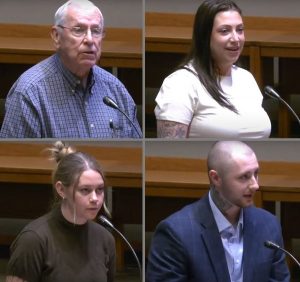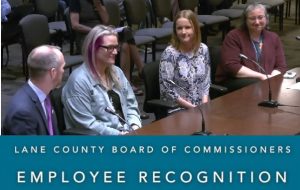A preparedness model for local news
3 min read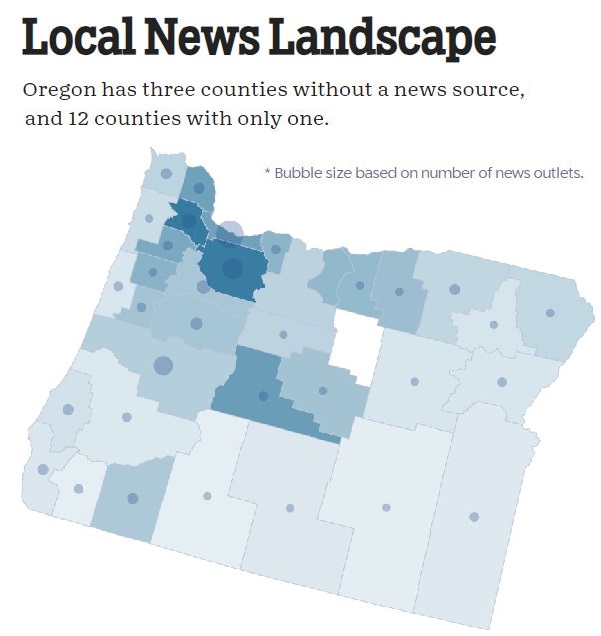
by John Quetzalcoatl Murray
The Eugene Weekly laid off its staff of 10 shortly before Christmas and failed to put out the paper this week after the printer demanded payment in advance. EW is alleging the bills were not paid because funds were embezzled.
This local tragedy follows the rapid decline of our once-beloved daily, the Register-Guard, after its acquisition by Gannett and a series of severe layoffs.
Eugene is not unique in experiencing the fragility and decline of local news. The Pulitzer-Prize winning Medford Mail-Tribune closed at the start of 2023, part of the national trend of expanding news deserts, mapped by Northwestern University’s Medill School of Journalism.
If you think our news ecosystem is bad now, imagine what it will be like after the next Cascadia Subduction Zone earthquake.
We are working to restore local news based on neighborhood preparedness.
Local city and county governments support FEMA CERT training and the Be 2 Weeks Ready and Map Your Neighborhood programs. These programs and free FEMA training help us learn to speak the same language as emergency responders.
Eugene neighborhood volunteers have developed a broad neighborhood-based program using FEMA’s Incident Command System, the standard organizational structure used in wildland firefighting and emergency response. Working within Ready Southeast, Ready NW Eugene, Ready Eugene, and the Eugene Neighborhoods Preparedness Network, we have developed training opportunities, discussion exercises, and field exercises that help us practice working together in teams.
One of those ICS roles is the neighborhood Public Information Officer, or PIO. With over 20 active neighborhood organizations in Eugene, there are opportunities for 40+ primary and backup PIOs to participate in training and regular practice to become trusted providers of local information.
The neighborhood PIOs can stay sharp year-round by doing light news reporting for their neighborhood newsletters and our award-winning local news site, Whole Community News.
Their news stories can also help support the production of a local street newspaper, creating a range of workforce opportunities for our growing homeless population. Under a Creative Commons license, local entrepreneurs are free to modify or republish our stories.
We check our facts and provide the links so you can verify them too. Our news nonprofit board of directors includes former KLCC Program Director Don Hein and long-time Register-Guard contributor Cynthia Whitfield. We are members of SPJ and RTDNA, and our work has been honored with the prestigious regional Edward R. Murrow award.
To further develop local resiliency, as demonstrated after large earthquakes in New Zealand, PIO volunteer time is recognized in the time bank, a concept successfully demonstrated by the late RFK speechwriter Edgar Cahn.
We are currently working to promote (1) state regulation of time banks, (2) adoption and support from local governments, and (3) a pilot program with a local bank or credit union to offer time dollar accounts. (Bank transaction systems can easily be configured to support different currencies.)
As Walter Cronkite said, “Freedom of the press is not just important to democracy, it is democracy.” Preserving our democracy means preserving our local news coverage.
We are asking Gov. Tina Kotek to declare a civic emergency in local news and deploy PIO resource teams to provide training and support. Neighborhood PIOs will learn by shadowing the visiting PIOs as they provide news stories to our local news organizations (which retain final edit approval of all submissions). As is the standard ICS practice, these responders serve for a limited time before returning to their regular jobs and home communities.
The New Yorker reported that in the aftermath of the next Cascadia earthquake, FEMA expects 13,000 fatalities, 27,000 persons injured, one million people displaced and another 2.5 million in need of food and water across the Pacific Northwest. We will face the largest disaster in the history of our nation. By adopting FEMA’s Whole Community approach now to plan, mitigate, and prepare to respond and recover, we can also start strengthening our local news infrastructure and democracy.
We hope you will join us in supporting Eugene Weekly, KLCC, KEPW, the Daily Emerald, Chronicle, Highway 58 Herald, Double Sided Media, and other local news organizations of your choice in 2024.
We also ask that you share how you would like to be involved.
